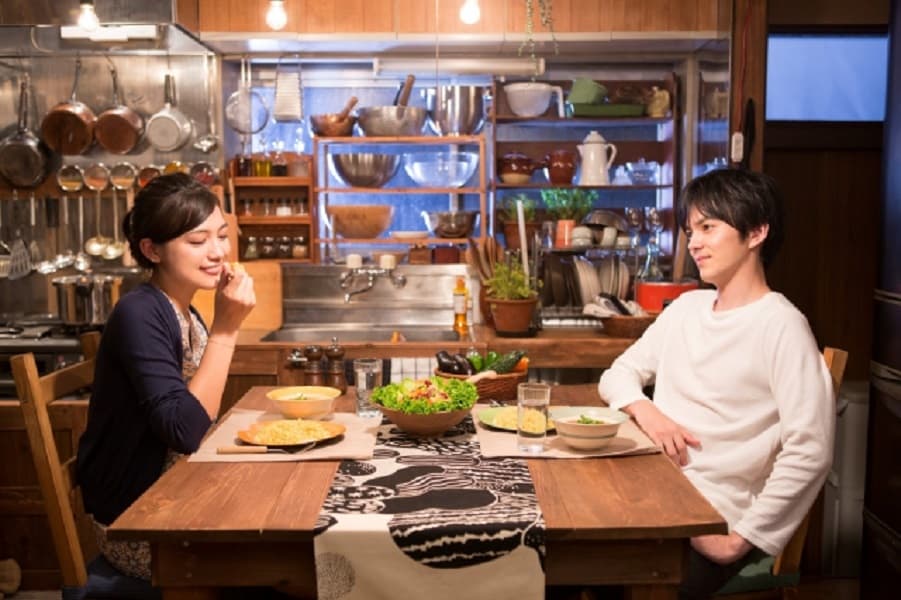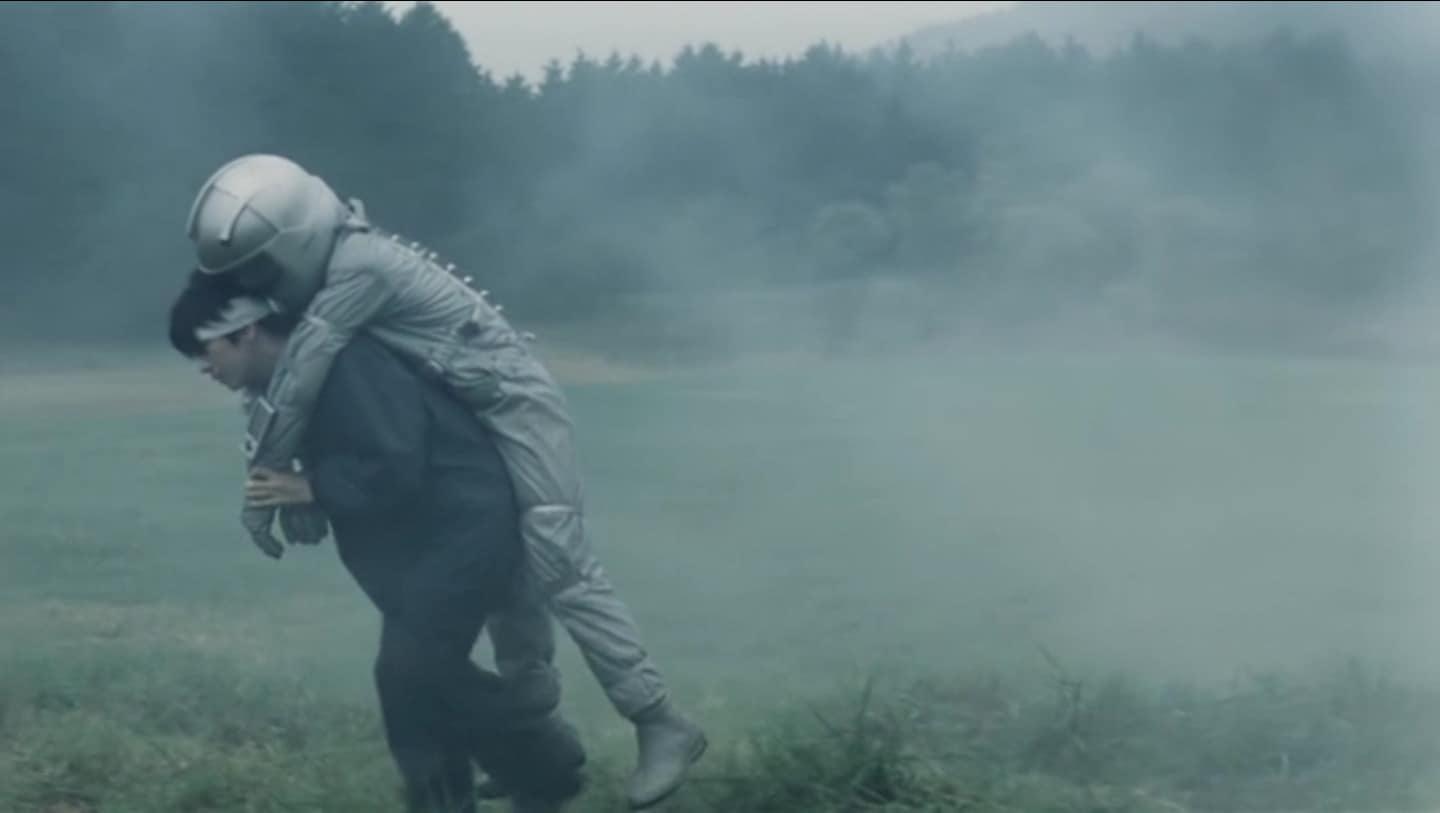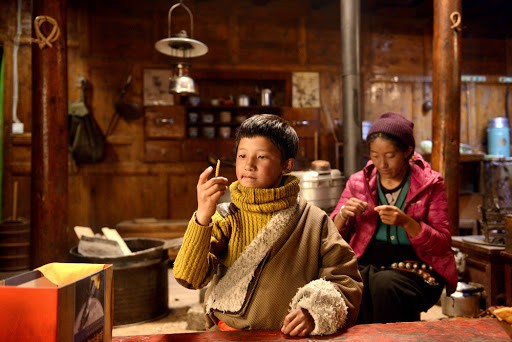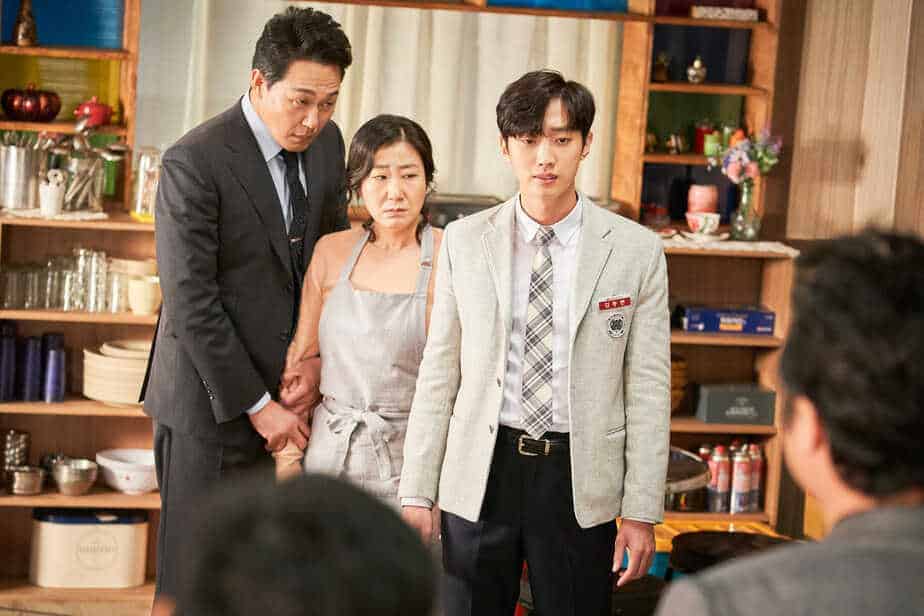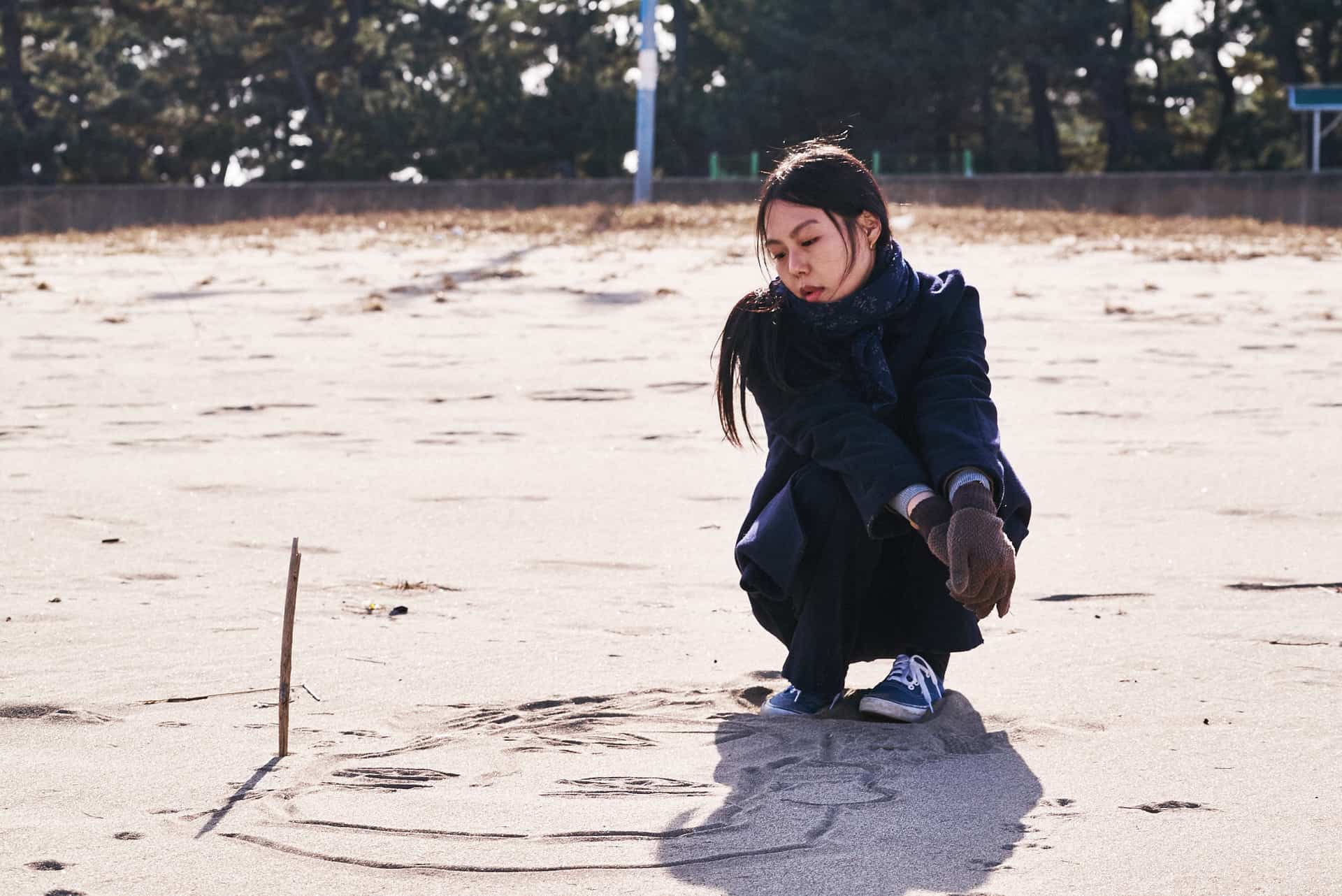To western eyes, there is a dichotomy in Japanese cuisine of the finest, natural, raw ingredients cooked to a slow process weighed against the overly colourful, artificial world of processed and convenience food, although all are usually delicious. And this dichotomy is worked into the story of Shogo Kusano's manga adaptation “Bitter Sweet”.
Bitter Sweet is Screening at Five Flavours Asian Film Festival
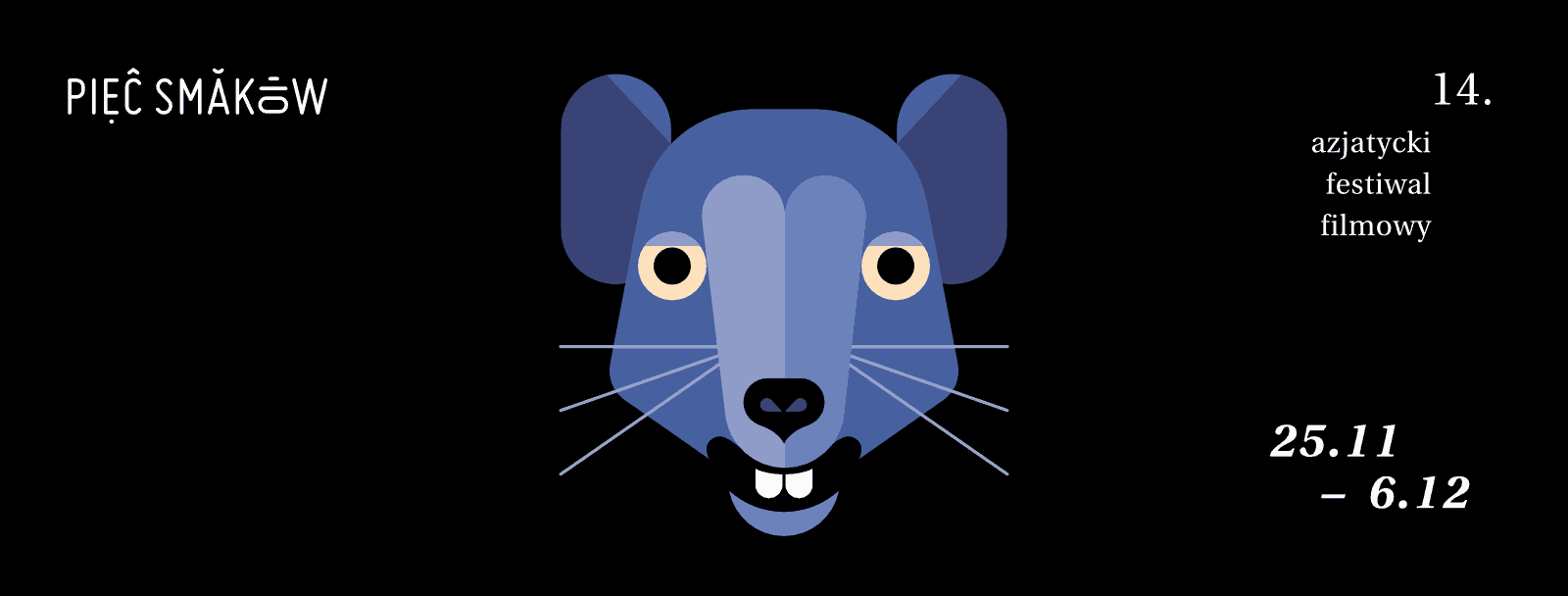
Maki (Haruna Kawaguchi) is an advertising exec with a vegetable phobia. Unlucky in love and work, she binges on supplements and alcohol to get her through the day. After another drunken night in a bar, she has a chance encounter with Nagisa (Kento Hayashi), a mild-mannered high school art teacher, vegetarian and homosexual. With Maki passed out, he offers to take her home and cook a delicious, healthy breakfast. Somewhat confused as to how she has awoken, Maki takes a shine to Nagisa, and with her lease about to expire, blackmails him into letting her move into his small house. Nagisa reluctantly agrees, on the condition that he does the cooking and she does the eating. Having to struggle to cope with her new diet, Maki also has workplace struggles, needing to create a campaign for the infamously bitter goya fruit. Nagisa can help Maki make the bitter taste sweet, while she hopes she can convert him in other ways.
“Bitter Sweet” feels every bit a manga adaptation from its hard-to-believe rom com set-up and Maki's reason for loathing vegetables that would be such a sticking point in a relationship with another adult. And while this is a fairly run-of-the-mill commercial film based on a manga, Kusano does add some moments of creativity and wit to give it some flavour.
Young actress Minami (Hiyori Sakurada) – the possible star of Maki's goya ad – plays with a small cartoon bird which starts to sing to her, before turning into a tirade of vulgar abuse, revealing her sat looking at social media on her phone. More moments such as this would have been welcomed.
But Kusano does make sure every ounce of the phase ‘bittersweet' is milked, reflecting polar opposites, the nature of Maki and Nagisa's will they/won't they relationship and painful memories of both of their pasts, as well as on the palate. There are also elements of social comment with Nagisa wanting to keep his sexuality secret from his workplace and Maki an exec working long hours, stressed on a diet of alcohol and junk food.
More, however, could be done in character development. Nagisa is clearly holding back in revealing his past as it is hinted at throughout, but never fully probed to give him more depth. Likewise, with Maki's father Yutaka (Hideo Nakano), a supposed organic food expert, but who comes across as a somewhat confused and bumbling old man with little knowledge of how to use ingredients. Maki's relationship with her father and Nagisa's with his older brother are never fully realised, which would have added an extra dimension.
The comic timing doesn't always hit the spot, and just when you feel the ending is going to go the way of the serious, we are taken back into the realm of straight comedy schtick. Though credit is due to Kusano for not ending this in the most obvious way, as overcoming a dislike for vegetables may be one thing, but others are not so easy to change.
With a lot of comfort food on offer and a sufficient amount of the ‘oishii!' (‘delicious') throughout, “Bitter Sweet” is easy enough to slip into and enjoy. But while there are some good raw ingredients, sometimes the overly-processed can leave your hunger less than satisfied.


